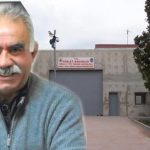Russian and Turkish officials reportedly used the construction of a nuclear power plant in southern Turkey to circumvent Western sanctions imposed on Moscow following its 2022 invasion of Ukraine. According to The Wall Street Journal (WSJ), more than $5 billion was indirectly transferred from a sanctioned Russian bank to a state-run bank in Turkey as part of the scheme.
Under the financial arrangement devised by Moscow and Ankara, Russia funneled $9 billion from its sanctioned central bank to Gazprombank, a Russian financial institution not under sanctions. The funds were earmarked for the construction of the Akkuyu nuclear power plant in Mersin, a southern province of Turkey. The project, which began in 2018, is expected to be fully operational by 2026.
Rosatom, Russia’s state-owned nuclear energy company, is overseeing the construction of the plant and, like Gazprombank, was not under Western sanctions. From Gazprombank, the money was transferred to Turkey’s state-run Ziraat Bank. In this way, over $5 billion was successfully moved, with further transactions planned.
Moscow’s strategy allowed Russian companies with accounts at Ziraat Bank to access U.S. dollars, eliminating the need for direct transactions through the U.S. financial system and reducing the risk of detection. The Wall Street Journal noted that “expensive nuclear plants financed in complex ways provide a convenient means to obscure financial movements for other purposes.”
However, U.S. authorities grew concerned about the massive fund transfers, particularly as JPMorgan Chase and Citigroup facilitated some of the transactions. American investigators ultimately froze $2 billion of Russian funds at JPMorgan after the U.S. government intervened to halt certain bank transfers.
According to WSJ sources, the U.S. Justice Department suspects that İbrahim Kalın, a close aide to President Recep Tayyip Erdoğan and Turkey’s then-intelligence director, was involved in the payments in 2022. At the time, Kalın served as Erdoğan’s chief spokesperson and a key national security adviser. He now leads Turkey’s main intelligence agency.
Additionally, then-Finance Minister Nureddin Nebati was reportedly another central figure in the transactions. Neither Kalın nor Nebati responded to WSJ’s requests for comment.
For Turkey, the arrangement provided a crucial influx of U.S. dollars at a time when its central bank was borrowing from commercial banks to stabilize the lira without raising interest rates, despite soaring inflation.
In 2024, U.S. prosecutors moved to seize the transferred funds, arguing that they constituted proceeds from sanctions evasion, money laundering, and bank fraud. However, their efforts were blocked in the final stages of the Biden administration, reportedly to avoid straining relations with Turkey, a key but often challenging NATO ally.
American officials feared that a formal complaint implicating Turkey could jeopardize cooperation with Erdoğan’s government on various strategic issues, including prisoner exchanges, counterterrorism efforts, and diplomatic initiatives in Syria and Gaza.
Unlike other NATO allies, Turkey declined to impose sanctions on Russia after the Ukraine invasion and instead deepened its economic ties with Moscow during a period of financial strain.



